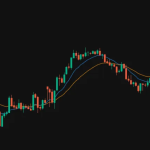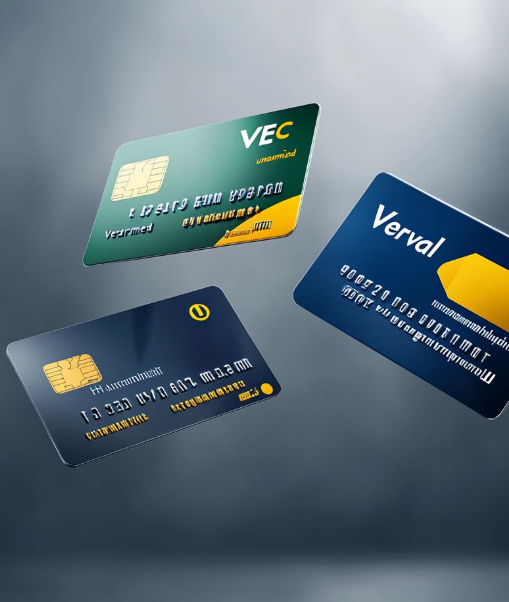In recent years, Bitcoin has become the face of the cryptocurrency world. However, behind the scenes, the Middle East and North Africa (MENA) region are experiencing a subtle yet powerful transformation with the rise of industry-specific stablecoins.
While Bitcoin is known for its price volatility and is primarily used as a store of value, stablecoins are designed to maintain a consistent value, often pegged to fiat currencies like the US dollar or local currencies like the dirham. More recently, industry-specific stablecoins tailored for sectors like payments, real estate, and trade are gaining traction. These new stablecoins are reshaping how businesses in MENA approach cross-border transactions, settlements, and value transfer.
What Are Industry-Specific Stablecoins?
At their core, stablecoins are digital currencies that are tied to a reserve asset, usually a fiat currency. Their primary feature is stability, unlike more volatile cryptocurrencies. However, industry-specific stablecoins go a step further by targeting specific use cases. These stablecoins are not only backed by fiat currencies but are also tailored to particular industries. For instance, you might find a stablecoin designed for real estate payments or one intended for transactions in logistics and shipping.
In the MENA region, this concept is already becoming a reality, with businesses exploring how these specialized stablecoins can streamline operations and enhance financial transactions.
Why Are Stablecoins Gaining Popularity in the MENA Region?
Stablecoin innovation is taking off in the MENA region for several reasons:
- Tech-Savvy Population: The region is home to a young, digital-native demographic eager to adopt new technologies.
- Government Support: Local governments are encouraging the exploration of digital currencies to boost economic growth and innovation.
- Established Trade Networks: The MENA region is a key player in global trade, with well-established logistics and business connections.
- Demand for Efficient Financial Systems: There’s a growing need for quicker, more cost-effective, and transparent financial systems.
The cross-border transfer of money in MENA has often been slow and expensive, but stablecoins offer a solution by simplifying and accelerating international transactions. Industry-specific stablecoins allow businesses to tailor financial solutions to their particular needs. For example, in the commodities market, a stablecoin linked to the price of oil or metals could allow traders to manage exposure and settle transactions more efficiently. Likewise, a dirham-pegged stablecoin could simplify property payments in real estate, making it easier for foreign investors to navigate the market.
Practical Implementations of Stablecoins in MENA
Here are a few areas where industry-specific stablecoins are already being tested or implemented in the MENA region:
- Cross-Border Trade and Logistics:
Companies dealing with goods in and out of free zones like Jebel Ali or Abu Dhabi Global Markets often face delays and high transaction costs due to middlemen and traditional banking systems. Stablecoins allow for faster, direct payments between buyers, sellers, and logistics providers, reducing both time and costs. - Real Estate Transactions:
In cities like Dubai, where foreign investors frequently buy property, stablecoins provide a more efficient and transparent way to handle transactions. Imagine paying for a property using a stablecoin, with the smart contract automatically updating ownership—this technology is already being tested. - Remittances and Payables:
Gulf businesses are exploring stablecoins to streamline payments for contractors and workers, especially for those working across borders. By using stablecoins, businesses can avoid the complexities of currency exchange and provide a simpler, faster payment option that is easily convertible to local currency.
Regulatory Support and Governmental Interest
Governments across the MENA region are starting to take a keen interest in stablecoins and tokenization. In the UAE, authorities such as the Virtual Asset Regulatory Authority (VARA) and the Abu Dhabi Global Market (ADGM) are creating frameworks to support innovation while ensuring compliance with international standards. Central banks are also investigating Central Bank Digital Currencies (CBDCs), which could potentially interact with stablecoins, signaling that digital currencies are becoming a key part of national financial strategies.
What Does This Mean for Businesses in the Region?
The rise of stablecoins offers businesses in sectors like finance, real estate, trade, and e-commerce an opportunity to rethink how they handle payments, settlements, and cash flow management. Adopting stablecoins doesn’t mean diving into speculative cryptocurrencies—it’s about using a modern financial tool to solve old problems.
With local players offering regulated, secure access to stablecoins, companies can integrate these solutions into their operations without navigating the complexities of unregulated crypto markets. Industry-specific stablecoins also foster collaboration between businesses, IT providers, and regulators, enabling faster transactions, smoother compliance, and a more efficient flow of funds.
How Fuze Facilitates Secure Access to Stablecoins
At Fuze, we provide businesses in the MENA region with a secure, regulated gateway to digital assets. Our over-the-counter (OTC) desk allows for large-scale stablecoin trades, including USDC and other tokenized currencies, with quick settlement and complete regulatory compliance. Whether you’re a CFO exploring new payment rails or a corporate treasurer looking to hedge currency risk, our infrastructure ensures that digital asset transactions are transparent, secure, and risk-managed.
We work closely with our clients to provide access to the tools they need, free from the confusion of retail crypto platforms, ensuring that solutions meet the specific demands of each industry.
Looking Ahead
The potential for stablecoins in the MENA region goes far beyond just facilitating faster payments. These digital assets are part of a larger transformation, creating tailored systems that address specific business challenges. From finance and logistics to real estate, industry-specific stablecoins are set to reshape how businesses operate.
As companies in the region adapt and choose the right partners, they will be well-positioned to thrive in a digital-first economy, capitalizing on the advantages that stablecoins offer for streamlined operations and cross-border trade.













